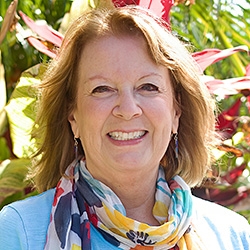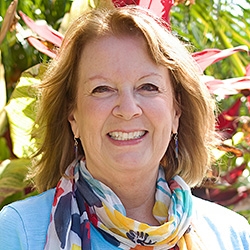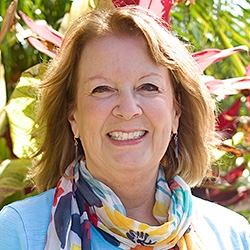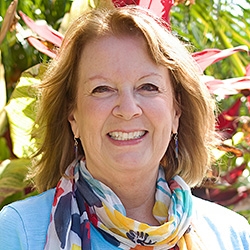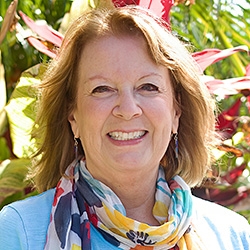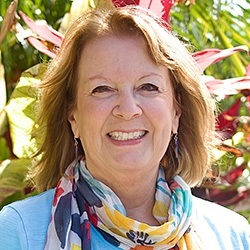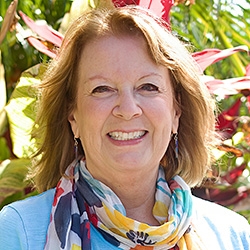

Search Results: communication
-
- 3 full-length courses to deepen your empathy practice
- Learn your body’s “language” and how to listen deeply to it
- Quickly reconnect and return to empathic presence when you are triggered
- Enhance your listening skills and experience greater ease and joy in all your interactions
-
Ask the Trainer: For many years I have been using crime and punishment (reward and consequences) to discipline because it was the only thing I knew. I knew deep in my heart it was alienating me...
-
This handout defines and contrasts "empathy" alongside "responses may meet needs, but are not empathy" (such as advice, correcting, consoling, etc).
-
Being heard is a core human need. But what if you don't like what the other person is saying: how do you hold onto your awareness of their humanity? Find out in this demonstration from Kathy Simon's course, Connect Across Differences.
-
Trainer tip: The phrase “tragic expressions of unmet needs” is used to convey how often we do things that aren’t likely to meet our needs. It’s not bad, it’s tragic -- because it won’t help us meet our needs. Acknowledging this, we can then consider a different approach that's more likely to lead to satisfying results. Read on for three examples of where this may apply in your life.
-
Trainer Tip: Strive for win-win resolutions where no one loses. Try this rather than deciding things by the majority or compromise, where one or more parties feel dissatisfied with the resolution because it involves an element of giving in. An alternative is shifting; both people connect to the needs they are trying to meet, and in doing so, one person makes an honest shift to contribute to the other person’s needs and life.
-
Exploring how to share NVC in a school environment where others may not yet understand its value.
-
An interviewer shares his reaction to the term Nonviolent Communication after a workshop.
-
Discover how Nonviolent Communication helped integrate spirituality into daily life and work.
-
- Discover how to be radically honest without pushing “the other” away
- Learn to ask firmly and gracefully for what you want, hear ‘NO,’ and stay alive
- Explore how the power of empathy dissolves anger, pain, and fear
- Discern the essence of what others say, no matter how it is expressed
-
NVC trainers discuss intrinsic needs in addiction and its alignment with 12-step programs.
-
The wisdom which NVC is based on is as old as humanity itself. This telecourse recording draws insights from NVC’s elder siblings of Taoism, Buddhism and indigenous culture to offer new ways of approaching common NVC ‘stuck’ places.
-
If role play, hearing conversations modeled and dialogue practice is how you learn, this is the telecourse recording for you! Learn the art of entering, staying in and bowing out of the conversational dance using real-life situations.
-
Workplace relationships are complex. Each employee brings their unique self to work. Their background, perspective, emotional triggers, and working style. Add to this the dynamics of power relations, and the fact that often workplace communication now takes place at our computer keyboards rather than face-to-face. Sylvia Haskvitz offers practical tips to make today's complex workplace relationships more satisfying and effective.
-
NVC practice is based on several key assumptions and intentions. When we live based on these assumptions and intentions, self-connection and connection with others become increasingly possible and easy, helping us contribute to a world where everyone’s needs are attended to peacefully.
-
Trainer Tip: Mourning enables us to heal the pain and gain clarity about how to meet our needs in the present moment.
-
Trainer Tip: When there's conflict if you set the intention to connect and build trust first, you're more likely to move towards resolution. This can be built through offering reflections that captures essence of what's important to each party. Once connection and trust is established, then begin the process of creating strategies and solutions.
-
Trainer Tip: Our inner critic judges ourselves and other people; and it is the most likely to get scared when we begin to make a change. It holds wisdom for us if we are willing to listen. When we acknowledge our inner critic and empathize with its need, we gain insights into ourselves and we clear the way for resolution.
-
Trainer tip: When you want to thank someone expressing what that person did, how you felt about and what needs were met for you, can provide the other person with more information. It can also help her more fully understand how she contributed to you, and deepen your connection with her.
-
Trainer tip: Be aware of your inner jackal chatter today and make a commitment to listen for the underlying needs they are trying to tell you about.

Quick Links
Subscription Preferences
Stay In Touch!
Looking for ways to keep up with NVC Academy news, get special offers, free resources, or words of inspiration? Here are five ways to stay engaged:





